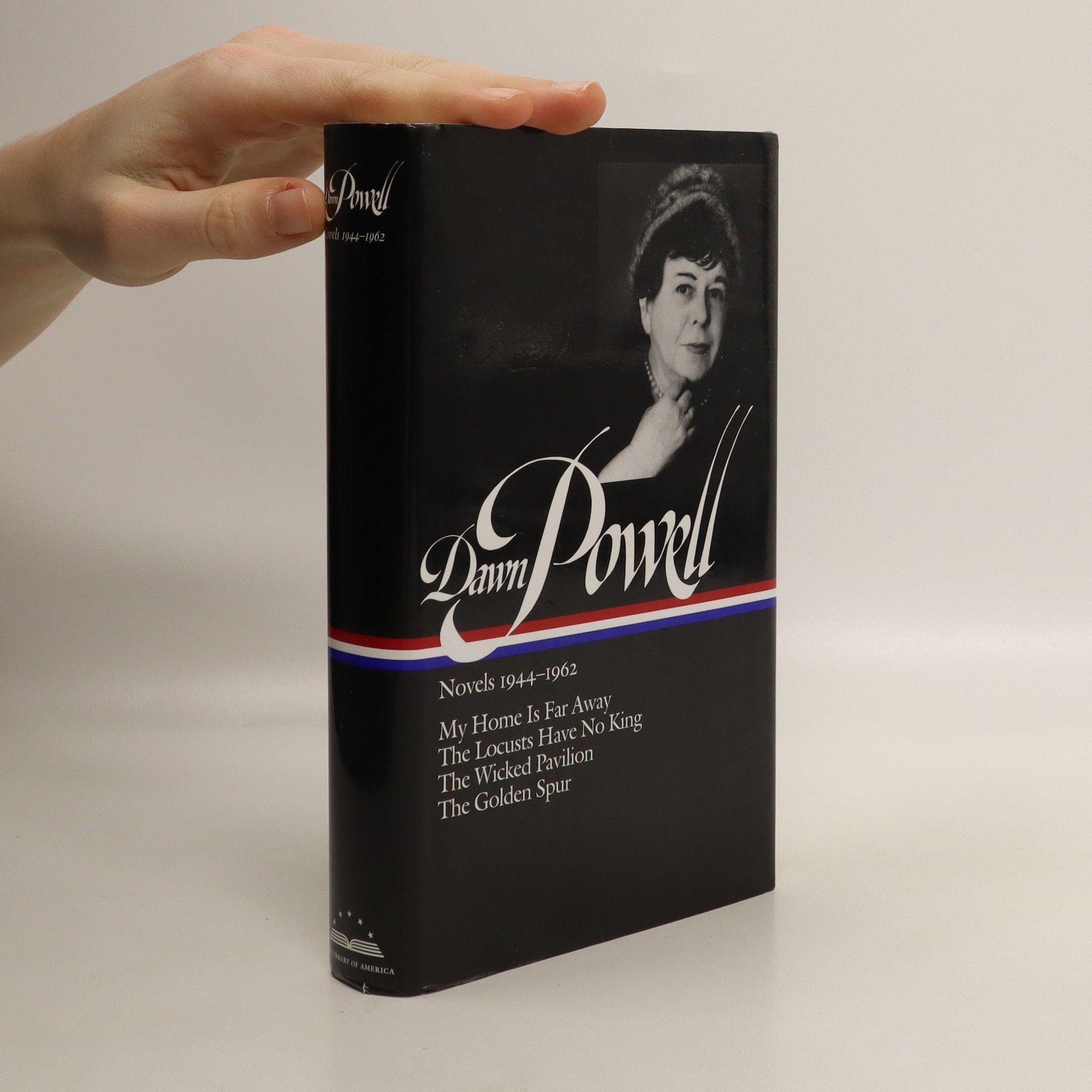Obwohl erst 1999 veröffentlicht, ist Dawn Powells Glücksrad eine Wiederentdeckung, da der Roman bereits 1936 erschien. Die Geschichte spielt in der New Yorker Schriftstellerszene der 30er Jahre und bietet eine unterhaltsame, anrührende Satire. Im Mittelpunkt steht die stolze Effie, die seit 15 Jahren in selbstbetrügerischen Erinnerungen an ihren Ex-Mann, den gefeierten Literaten Andrew Callingham, lebt. Ihr bester Freund, der distanzierte Bohemien Dennis Orphen, hat Effies Geschichte in einen Roman verwandelt. Das statische Leben Effies gerät in Bewegung, als Callinghams zweite Frau, frisch von ihm verlassen, im Sterben liegt und Effie ihren Ex an ihr Sterbebett holen soll. Mit psychologischem Scharfsinn beleuchtet Powell Trunksucht, Eitelkeit und Verlogenheit der New Yorker Szene, ohne in Zynismus zu verfallen. Die Hauptfiguren sind trotz ihrer inneren Konflikte sympathisch, und der Leser identifiziert sich mit ihren emotionalen Schwächen. Diese Satire zeigt menschliche Züge, auch wenn gelegentlich Pathos auftritt. Ein informatives Nachwort der Übersetzerin Karin Lauer liefert wertvolle Hinweise zum historischen Kontext sowie zum Leben und Werk der zu Unrecht vergessenen Autorin.
Dawn Powell Bücher
Dawn Powell war eine amerikanische Schriftstellerin satirischer Romane und Kurzgeschichten, deren Werke sowohl bissig als auch einfühlsam waren. Ihre Arbeit fing oft die Absurdität und Heuchelei des modernen Lebens mit einem scharfen Beobachtungssinn ein. Powells Stil zeichnet sich durch scharfen Witz, präzise Prosa und einen unerschrockenen Fokus auf menschliche Schwächen aus. Sie deckte meisterhaft die Widersprüche in der menschlichen Natur und gesellschaftlichen Konventionen auf.






Mariah, die den frühen Verlust ihrer Mutter nie verwunden hat, erlebt das Erwachsenwerden als sehr schmerzlichen Prozess. Sie macht sich auf die Suche nach ihrem Vater und erlebt mit ihm zusammen eine Zeit voller erotischer Verwirrungen.
Downtown Ladies
- 335 Seiten
- 12 Lesestunden
American literature has few writers with the comic flair and vivid character portrayals found in the novels of Dawn Powell. For decades after her death, her work remained out of print, appreciated only by a small group of fans. Recently, however, she has been rediscovered, with Gore Vidal calling her "our best comic novelist" and Edmund Wilson placing her alongside literary giants like Anthony Powell and Evelyn Waugh. A two-volume set from The Library of America showcases Powell's unique, often humorous, and sometimes poignant fiction. A key figure in literary Greenwich Village from the 1920s to the 1960s, Powell chronicled two contrasting worlds: her melancholic Ohio upbringing and the vibrant Manhattan life she embraced for nearly fifty years. Her Ohio novels exude compassion, while her Manhattan stories are lively and incisive, featuring a colorful array of writers and socialites, all seen through her sharp yet empathetic lens. A masterful satirist and keen observer of human folly, Powell's work is a significant literary rediscovery. "My Home Is Far Away" (1944) reflects her challenging childhood, while "The Locusts Have No King" (1948) explores a scholar's encounter with fame. This is followed by "The Wicked Pavilion" (1954), which critiques illusions of love and success in Greenwich Village, and concludes with "The Golden Spur" (1962), a satire of Manhattan's art scene inspired by her experiences at the Cedar Tavern.
Can't Catch Me!
- 12 Seiten
- 1 Lesestunde
Join in the chase after the Gingerbread Man, together with Jack and the Giant, the Three Pigs, an angry troll and a host of other fairy tale folk in this unusual, funny and surprising version of an old favourite.'Can't Catch Me!' hides a wealth of fun beneath east-to-lift flaps and in gloriously detailed pictures of a fairy-tale world waiting to be explored.
For decades after her death, Dawn Powell's work was out of print, cherished by a small band of admirers. Only recently has there been renewed awareness of the novelist who was such a vital presence in literary Greenwich Village from the 1920s to the 1960s. With these two volumes, The Library of America presents the best of Powell's quirky, often hilarious, sometimes deeply moving fiction.Dawn Powell was the tirelessly observant chronicler of two very different worlds: the small-town Ohio of her childhood and the sophisticated Manhattan to which she gravitated. If her Ohio novels are more melancholy and compassionate in their depiction of often frustrated lives, her Manhattan novels, with their cast of writers, show people, businessmen, and hustling hangers-on, are more exuberant and incisive. But all show rich characterization and a flair for the gist of social complexities. A playful satirist, an unsentimental observer of failed hopes and misguided longings, Dawn Powell is a literary rediscovery of rare importance.

